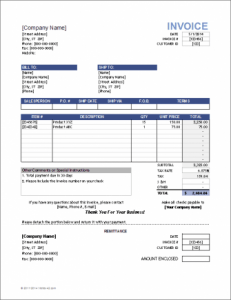
Your budget is the friend that whispers financial wisdom in your ear, ensuring that each decision contributes to your overall financial well-being. It’s like having a calming friend by your side, guiding you through the twists and turns of your financial journey. Consider your budget as a worry-buster, identifying potential financial challenges and preparing you to face them with confidence. It ensures that your money is not just dribbling away but scoring points in the right places. Your budget acts as the referee, keeping tabs on the ins and outs of your money game. Imagine your money as a limited resource – a treasure map, if you will.
Control Over Finances
- At its core, budgeting’s primary function is to ensure an organization has enough resources to meet its goals.
- A flexible budget has a relational value to certain variables.
- Budgets are developed for all the different subsidiaries, divisions, and departments within an organization.
- Stash does not represent in any manner that the circumstances described herein will result in any particular outcome.
- The good news is that one of the best ways to combat financial overwhelm is to live your life on a budget.
Profit and prosper with the best of expert advice on investing, taxes, retirement, personal finance and more – straight to your e-mail. While it might take work at first, in the long run, budgeting will secure you the financial stability needed to acquire wealth, and equally as important, peace of mind. Maybe not everyone needs a budget, but just about all of https://www.kelleysbookkeeping.com/who-issues-a-bill-of-lading-here-are-the-responsible-parties/ us can benefit from one. Here are the basics on why budgeting is important and how to get started. Stash assumes no obligation to provide notifications of changes in any factors that could affect the information provided. This information should not be relied upon by the reader as research or investment advice regarding any issuer or security in particular.
Budgeting Ensures You Only Spend What You Can Afford
The second is that if you don’t have the money to cover these expenses, the expenses can be reduced or eliminated without too much difficulty. For example, if you’re out of money, the entertainment budget takes a hit, and you stay home on Friday night, or you don’t buy those new shoes that you’ve been considering. Part of taking control of your money is learning how to exercise some discipline in your spending habits.
Get Over the Terminology
Make it clear that whenever you create a new budget, you’ll take into account the current needs of your team rather than historical trends. By doing this, it may be possible to prevent people from overspending. And it doesn’t matter if you do your business taxes yourself or hire a professional. For instance, you could spend money on tax software or hire someone to file your taxes on a regular basis.
Schedule a Periodic Budget Evaluation
Your budget is your financial lifeguard, ensuring you stay afloat and enjoy the journey without drowning in unnecessary expenses. When you budget, you set clear boundaries for your spending, acting like a captain navigating through potential storms of financial trouble. Picture your budget as a wise friend who helps you avoid the pitfalls of overspending, keeping your financial ship steady in the vast sea of expenses. With budgeting, you become the MVP of your financial team, making sure everyone plays their part effectively. So, embrace budgeting as your financial coach, guiding your money through a winning season of cash flow management. One of the top five importance of budgeting is that it enables you to properly manage your money.
Know Your Income

When you stop spending, that’s called sticking to your budget. The amount you have left is what you can budget for discretionary expenses and savings goals. What you budget for expenses should not be more than your income; otherwise, you will end up in debt.

Without a budget, you could find yourself with unexpected expenditures. Budgeting is the process of putting a plan together to help you not only save money, but also know how to spend it. A budget can ensure you’re not overspending and you can cover necessary expenses. It’s often done monthly and you can re-evaluate it periodically. But that credit card still calls your name, your clothes budget seems awfully small, and you feel deprived. At such moments, it helps to revisit the whole reason for a budget—to help you manage your finances, achieve financial goals, and lead a life free from fear of financial pitfalls.
Think of it as a decision-making superhero, helping you avoid impulsive actions that can lead to financial pitfalls. The major purpose of budgeting is to help you make quality financial decisions. One of the major https://www.wave-accounting.net/ is tied to how much it can help you make great decisions. Consider your budget as a resource maestro, helping you allocate time, energy, and money where they matter most. It’s not about restriction but about optimizing your resources for maximum impact.
He is the co-founder of BeTheBudget, and Chipotle’s most loyal customer. You see, when I began living on a budget, I was able to eliminate waste, which increased the amount I was able to save. On top of that, my budget started holding me accountable for all the financial decisions I was making, which, in turn, kept me from spending it all in epic fashion.

A kaizen budget involves regularly improving your processes to help reduce different costs. Creating and following this type of budget helps lead to long term improvements. what is a contra asset account Typically, you would incorporate the expected cost reductions into the budget itself. Fine-tune and adjust your spending as needed after each month.
Just make sure that you always keep your long-term financial goals in the picture. This can be a process of substitution as much as elimination. For example, cancel any recurring subscriptions that you don’t regularly use or need. Use half of the money you save to invest for a goal or to pay off outstanding debts. Budgeting is not synonymous with spending as little money as possible or making yourself feel guilty about every purchase. The aim of budgeting is to make sure you’re able to spend on what’s needed and save a little each month, ideally at least 10% of your income.
Your budget guides you to allocate money where it matters most – to your needs. Think of your budget as a magic wand that brings clarity to your financial priorities. By allocating specific amounts to different spending categories, your budget serves as a compass, keeping you on course.